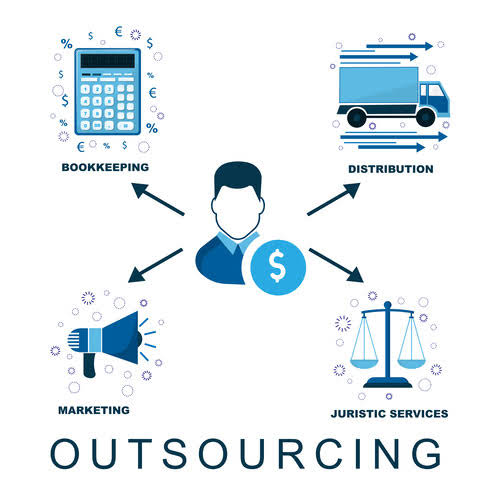
So, while IRS audits are not frequent occurrences due to federal tax law requirements for a nonprofit organization, the modest possibility remains. Certain states have specific audit requirements for nonprofits laws mandating that nonprofits undergo regular auditing. These regulations often depend on the size of the organization, its revenue, or its funding sources. For instance, nonprofits receiving significant public contributions may be legally obligated to submit audited financial statements. A nonprofit audit is an independent examination of audited financial statements and records to ensure compliance.
- Many nonprofit leaders ask us what they should be doing at the end of the year to make sure they are ready for an audit, ready to complete their Form 990, and ready to produce an annual report.
- Ultimately, protecting assets from fraud enables your nonprofit to have more funds available to support its mission, which is why the nonprofit exists.
- Money should not be spent unless it can be tied back to the mission of the nonprofit.
- Their labor costs for the entire time spent at that event should not be entirely allocated to fundraising because a large portion of the time is most likely spent on program education rather than actual fundraising.
- I once worked a case where an entity put GPS trackers on company trucks and found that employees were taking them to grocery stores, state parks, on family trips, even to church.
What should nonprofits consider when selecting an auditor?

Update outdated controls and document any changes to maintain clarity and consistency. A clear and organized system will not only make the audit process smoother but also demonstrate accountability and transparency to stakeholders. A poorly prepared financial report can cause management or board members to receive incorrect financial information. This can result in penalties, worse yet material fraud, including misappropriation of funds. ✔️ When you want to apply for a loan.Many banks will ask for audited financials as a prerequisite for lending you money. ✔️ When you want to get serious about grant funding.Many grants require an audit (not a review or compilation) because it provides an opinion of assurance.
- But the primary difference between a financial review, a financial compilation, and an audit is the level of “assurance” they provide.
- Consequently, the laws that require a charitable nonprofit to submit audited financial statements also vary state-by-state.
- Audits might not be the most glamorous part of running a nonprofit, but they are essential for maintaining trust, ensuring compliance, and improving financial health.
- Additionally, this allows organizations to make informed decisions about how they manage their funds, endeavor to be compliant in their operations, and demonstrate good stewardship of donor funds.
- Adopting best practices can significantly enhance the audit process and the quality of audited financial statements.
- Ask your auditor at the beginning of the year to provide you with a copy of the PBC (provided by client) schedule, so that you can collect all the materials you’ll need for your audit throughout the year.
Free Nonprofit Organization Audit Checklist
- Navigating nonprofit audit requirements can be complex, but it’s crucial for maintaining transparency and donor trust.
- Additionally, donors also tend to look at the percentage of every dollar that goes to programs before they make decisions about where to send their money set aside for charitable donations.
- Regular audits significantly enhance a nonprofit’s operations and credibility.
- Very few people can recover funds lost to embezzlement, even with a court judgement.
- The IRS will occasionally audit exempt organizations, but these make up a small percentage of the total.
However, preparing for an audit takes time, which you’ll need to factor into your decision for when to conduct it. The National Council of Nonprofits has created this Nonprofit Audit Guide© to provide charitable nonprofits with the tools they need to make informed decisions about independent audits. Rooled’s expertise in audit preparation can help your organization navigate this critical process with ease. Contact us today to ensure your nonprofit is fully prepared for its year-end audit and ready to maintain financial transparency and trust with stakeholders. Rooled’s audit readiness services help nonprofits organize and prepare efficiently, ensuring all documentation is in order and your team is fully equipped for a successful audit process. This phase is critical for pinpointing discrepancies and ensuring transparency within the organization’s financial practices.
Help us connect, champion, and inform charitable nonprofits.

This type of audit generally addresses issues with your tax return, discrepancies between your organization’s and freelancers’ or employee returns, or if a division of the IRS issues an IRS-wide examination. Some of these reasons come from external sources, but regular audits can also be an excellent long-term practice for your organization. A financial audit by an independent CPA is performed methodically and according to rigorous criteria. One step leads to the next so the nonprofit firm has a full picture of its financial health. Once the initial contact letter from the agency arrives, nonprofit executives should respond and move promptly.
The benefits of an independent financial audit for nonprofits:
These embrace best practices recognized Partnership Accounting throughout the accounting profession. They include cost principle, revenue recognition, materiality principle, and full disclosure principle, among many others. The audit helps to hold the organization accountable to its directors, its investors, and its donors. In brief, the IRS wants to confirm that the foundation, charity, or other nonprofit concern is following the prescribed rules of reporting and fulfilling the purpose upon which its tax exemption is based. As with audits, the appropriate company officer will receive a written heads-up that a compliance check is coming.
How often should a nonprofit organization have its financial statements audited?

But the primary difference between a financial review, a financial gross vs net compilation, and an audit is the level of “assurance” they provide. Because a nonprofit audit can easily cost $10,000+, not every nonprofit can afford one. Organizations that receive more than $750,000 in federal funding may be required to complete an audit.
